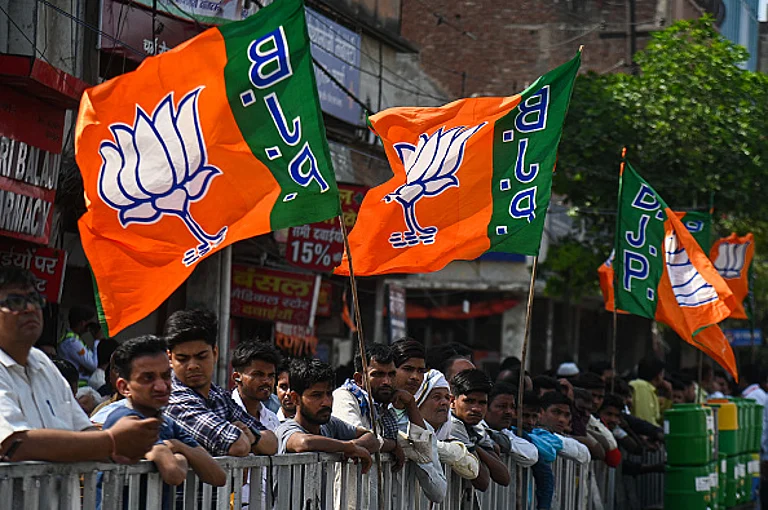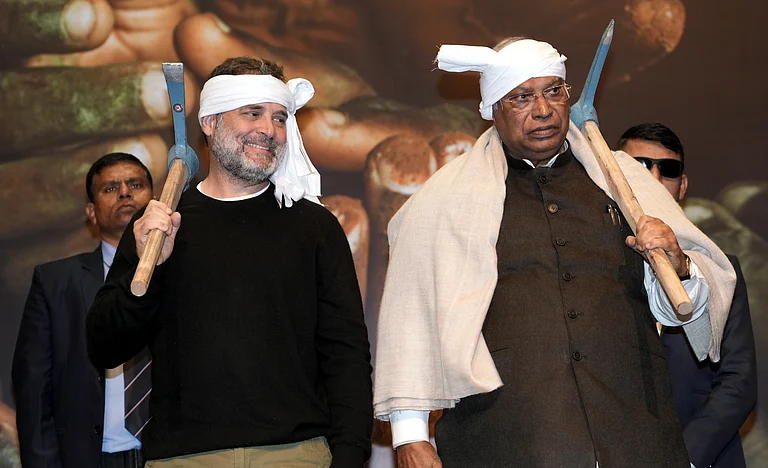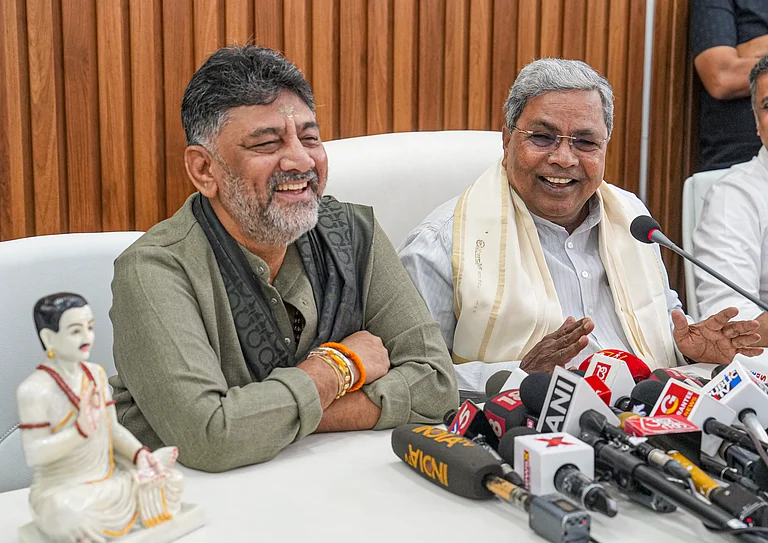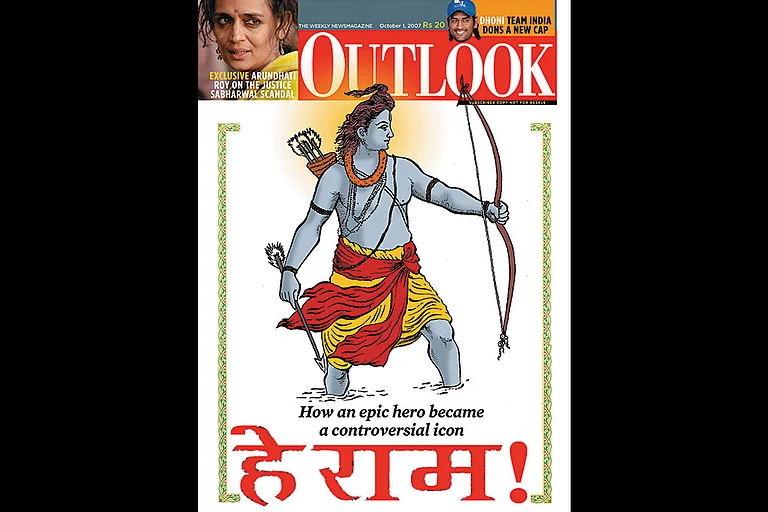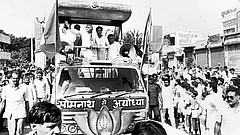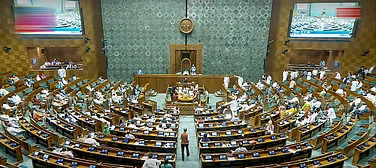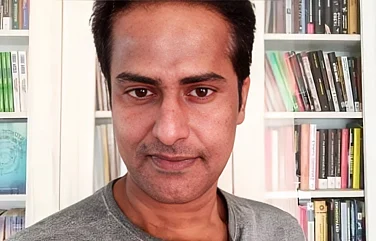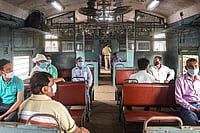Ram Mandir Pran Pratishtha ceremony in Ayodhya—the inauguration of the Ram temple—is a crucial cultural and religious moment for the country. It may have multiple implications. First, the temple, which will emerge as an important pilgrimage site, is going to have a significant cultural and civilisational impact on Hindu communities in India and abroad. Second, it may evolve as a major tourist destination for people belonging to various religious faiths. Third, it may emerge as a symbol of pride for Hindus across the world. This sense of pride may have a mobilisational impact, too, which is likely to have social and political implications in the coming years.
Since my area of expertise is political anthropology based analysis, people keep asking me—what will be the political implications of the Ram temple inauguration in Ayodhya? The event will indeed have a deep impact on Indian politics. It may certainly influence the processes and outcomes of the upcoming General Elections. Both, the parties in power, as well as those sitting in the Opposition will be impacted by the inauguration of the temple.
The event may help political parties looking to better their electoral performance in the General Elections gain significant political capital. In the National Democratic Alliance (NDA), the Bharatiya Janata Party (BJP) may emerge as the largest beneficiary. The party has been actively involved in the Ram temple movement struggle. Prime Minister Narendra Modi, who is the central face of the BJP, played a crucial role in resolving this issue and facilitated the process of building the temple. So, the BJP may get the largest share of the political capital generated by the Ram Janmabhoomi issue. It may help mobilise voters, especially Hindu voters, towards the BJP.
Lord Ram has been a prominent figure in the socio-cultural and religious memory of Indian society. People from different castes, classes and communities have kept Lord Ram alive in their memories through kathas and bhajans. Lord Ram works as a unifying and integrating factor for society. The rich, the poor, women, Dalits, peasants, the middle-class—all have a deep connect with Ram. This may result in them having an emotional connect with the newly constructed Ram temple as well.
Different characters from the Ramayana, too, have a distinct socio-narrative base. Many marginal and subaltern communities relate with characters like Hanuman, Jatayu, Nishad Raj Guhya and Sabari. Many tribal communities assert that they are descendants of Sabari. Because of this connection, the idea of Ram appeals to the tribal communities. Similarly, Nishad Raj Guhya, who helped Ram cross the Ganga River while he was on the way to his vanvaas (exile), is the greatest icon of the Nishad, Mallah, Majhi, Majhwar, Kewat and other sizable Other Backward Caste (OBC) communities living across the coastal and river belts in the country.
The RSS and its allied organisations are working meticulously to engage each and every household with the inauguration event. They are trying to project it as a janutsav.
Hanuman is among the most worshiped deities. Interestingly, tribals, Dalits and various subaltern communities consider him as one among them. Jatayu also has a totemic presence among a few tribal communities. Various artisanal castes in India claim that they are the descendants of Nal-Neel who are known as the main architects of the setu (bridge) between Rameshwaram and Lanka using which Ram reached Lanka to fight Ravana.
To make people understand the importance of Sabari, Jatayu, Hanuman and various other characters of the Ramayana, and looking at their influence on various communities, the Ram Janmabhoomi trust is planning to construct temples of these characters in the main complex. It will act as a matter of pride for various subaltern communities and may, in turn, convert into votes for political parties like the BJP. The construction of the Ram temple was an important promise made by the BJP. It may project it as the fulfilment of one of the ‘Modi guarantees’.
Interestingly, for the inauguration ceremony, representatives of 50 subaltern communities like Adivasi, girivasi, tat-vasi, dweepvasi, etc, have been invited as atevishist (very important) guests. By inviting them as guests and giving equal importance to these marginal communities, the organisers have been extremely mindful. It may help them prove that the inauguration of the Ram temple is a ‘mega integrative and unitive’ event that will bring various sections of society together. Any political mobilisation around the Ram temple may attract these communities towards political parties that bring discourse around it in their election campaigns.
Not just in the national political discourse, the inauguration of the temple will have an impact on regional politics, too. The event is likely to have a deep influence on the politics of Uttar Pradesh. State Chief Minister Yogi Adityanath is working hard to help align the perception of the people of Uttar Pradesh about the state with the inauguration of the Ram temple.
The Rashtriya Swayamsevak Sangh (RSS) and its various allied organisations are working meticulously to engage each and every household with the inauguration event. They are trying to project this event as a janutsav (public festival). So, on the political turf of Uttar Pradesh, this event may end up being a big dividend for political parties like the BJP.
The Congress and the other parties of the I.N.D.I.A group are in a confused state of mind regarding this event. They are neither able to accept the public euphoria around the inauguration nor are they in a position to reject it entirely as the Ram temple is an emotional issue for Hindus. So, they are showing an ambiguous approach towards the inauguration. Their political ambiguity may distract Hindutva minds from these parties. It may create political capital for them among minority communities like Muslims to a certain extent.
The General Elections are not too far. It remains to be seen how the inauguration of the Ram temple is going to play out for political parties in the upcoming elections. Some may gain; some are likely to lose out.
(Views expressed are personal)
MORE FROM THIS ISSUE
Badri Narayan is a social historian and cultural anthropologist
(This appeared in the print as 'Eye On Polls?')







